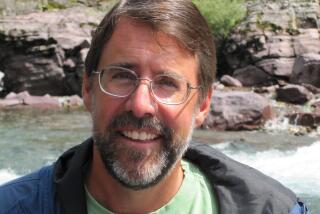Trashing the Angeles National Forest : Thoughtless acts by hikers and picnickers are fouling a priceless recreational resource
Yosemite National Park had quite a salesperson in the 1940s. At that time, Ansel Adams’ dramatic photographs were used to highlight the precious value of open, public space and a national park system. The impact of that sales pitch is still felt today. That’s why the national press always flocks to Yosemite whenever it is time for another story on how vehicle traffic, crowds and creeping urbanization are destroying public lands.
It’s a shame that Adams, or someone half as talented, never did the same for the Angeles National Forest.
That’s because acute examples of everything that ails the national parks and forests can be found right here in the Angeles. The past Labor Day weekend was a case in point.
Yes, the Angeles National Forest is enjoyed by increasingly dense crowds from the northeast San Fernando Valley. But don’t forget those huge crowds of high desert visitors, too.
Now, Angeles sees far more recreational use than Yosemite. The Angeles Forest is second only to Tonto National Forest, near Phoenix, as the nation’s most used national forest. Angeles is also the most abused.
Regularly, there are overwhelming amounts of litter. On the most popular weekends, cars are often double- and triple-parked, preventing passage for emergency vehicles. Graffiti is common.
Campers disturb wildlife by building rock dams to create better swimming holes. Dumped charcoal from barbecues and the lack of toilets is further fouling the land.
Solutions will not come easily, given our tight local budgets and a Congress that is not eager to spend more on public lands. One answer must come from the state and locally elected officials whose constituents are using and abusing the forest. They must make a coordinated public pitch for keeping the parks clean. And we hope that more people follow the lead of one of this week’s columnists, Rosanne Welch. Welch and her husband have devoted weekend days to cleaning up the forest.
The alternative is further decline, and more restrictions on use by a U.S. Forest Service that may have no other choice.
More to Read
Sign up for The Wild
We’ll help you find the best places to hike, bike and run, as well as the perfect silent spots for meditation and yoga.
You may occasionally receive promotional content from the Los Angeles Times.






